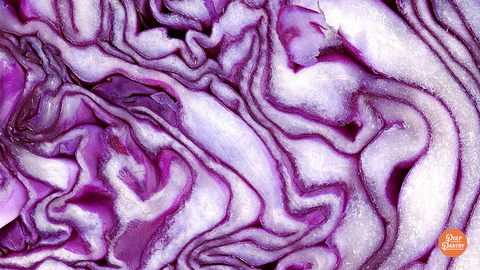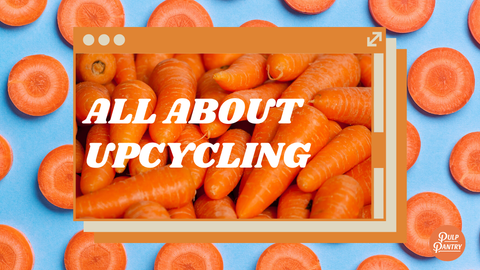
Move over gluten-free, paleo, keto. Here's why a planetary health diet should be your new best friend.
There’s a new “diet” in town, but it’s not the hot new weight loss scheme you might be thinking. It’s called the Planetary Health Diet -- and it’s here to make sure we’re eating for longevity as people and for our planet.
The Planetary Health Diet encourages us to increase consumption of fruits, vegetables, nuts and legumes while reducing to small portions of meat and dairy.
Adopting a planetary health diet can prevent 11 million premature adult deaths per year while helping us build towards a better, healthier food system for all.
What’s so bad about the way our food system currently operates?
To name a few… overuse of fertilizers, excessive reliance on antibiotics in animals, and untreated agricultural runoff leads to diseases caused by air pollution and water contamination. Our reliance on pesticides leads to increased antimicrobial resistance with adverse impacts on human health and resilience.
Climate change will continue to impact our health in many ways, including worsening allergies, increased air pollution leading to greater instances of heart and lung disease, and mental health challenges induced from greater stress and anxiety.
It’s clear that change is needed (and overdue).
Below are 4 simple ways that you can eat with the planet in mind, and how it may help improve general wellbeing and longevity.

1. Eat Organic, Regeneratively Grown, Biodynamic where possible.
Environmental toxins affect our health as we’re exposed to chemicals and hormone disruptors in our drinking water, pesticides in our food and pollutants in the air we breathe. By eating organic, we can ensure that we’re reducing the amount of toxicity that’s relayed through the food we eat. And by increasing demand for organics, we help to shift the demand for more organic produce across the food system. Did you know that organic also intrinsically means non-GMO? If you want to take things a step further, look out for regenerative and biodynamically grown crops that actually replenish our soils with nutrition, naturally.

2. There’s nutrition hidden in the odds and ends we waste.
We’ve already explored how food waste is detrimental to our planet, and that we, as consumers, are the largest producers of wasted food (in the United States).
What you might not realize is that we’re missing out on key nutrition when we throw away stalks, seeds, stems, skin, and pulp! Did you know that cauliflower leaves are one of the richest sources of calcium and iron in the plant? Or that eating the skins on kiwis will double the fiber content, boost folate and Vitamin E by over 30%? It’s the same with other fruits and vegetables (make sure, though, that you’re eating skins from organically grown produce only to reduce toxin exposure!).
Of course, we have to talk about our favorite ingredient, fruit and vegetable pulp. Pulp contains 95% of the fiber from fresh fruits and veggies and as much as 50% of the nutrients. By incorporating pulp into different dishes (recipes here) you’re making sure you don’t miss out on that good for your gut fiber.
3. Reducing meat and dairy and meat can have significant health and environmental benefits.
Studies show that middle-aged people who eat a diet high in animal proteins from milk, meat and cheese are more likely to die of cancer than someone who eats a low-protein diet. Reducing consumption of animal-based foods is a win for the planet, too, as foods sourced from animals have much higher environmental footprints than plant-based protein sources.
That doesn’t mean you have to give it up entirely! Switch up your plate by adding in more plant-based, energy-efficient sources of protein. Take a look at the chart below to understand how meat compares to plant-based proteins.

4. When you eat in line with your values, you feel good.
Let’s talk about psychological wellness. If you’re someone who cares deeply for the environment, you’re probably concerned with how you can lessen your impact on our planet.
By educating yourself on the environmental issues associated with what we consume, and taking the subsequent action steps to live by your values as a conscious global consumer, you’re subconsciously reducing cognitive dissonance and the associated stress.
What’s cognitive dissonance? Cognitive dissonance happens when you’re aware that your behavior is unaligned with your beliefs. By shifting our behaviors to stand up for the things we care about, we’re reducing our overall stress levels. Ahh, and who doesn't want less stress?

Want more? We break down our top tips for starting on the Planetary Health Diet here.

About Pulp Pantry:
Pulp Pantry turns overlooked resources like upcycled vegetable juice pulp into wholesome everyday snacks that make it convenient and delicious to eat more servings of vegetables and fiber.
Our newly launched Pulp Chips are vegetable-based, tortilla style chips made from fresh, upcycled vegetables as the first ingredient. Pulp Chips are a craveable better-for-you, better-for-the-planet snack with up to a full day's serving of fiber in each bag.
Try all of our four delicious flavors: Barbecue, Jalapeño Lime, Classic Sea Salt, Salt n' Vinegar.





